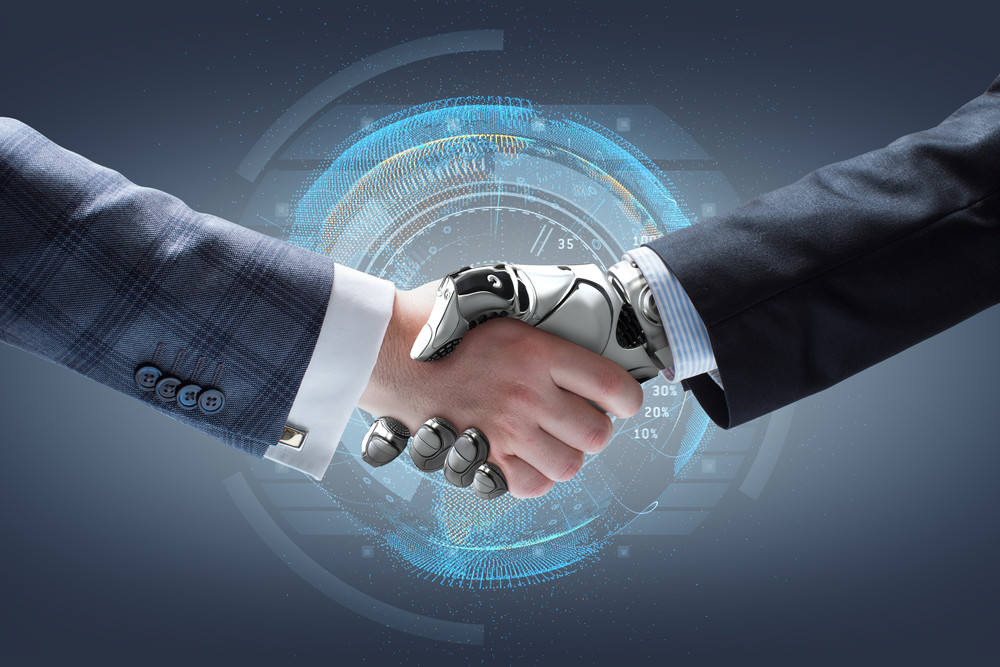
Rebooting The Talent Industry
Artificial Intelligence is playing an ever-growing role in recruitment – but rather than hurting us, it could actually be helping us
When people think about AI in the workplace, their first thought is often of robots replacing jobs that were traditionally performed by humans. But when it comes to managing human capital, artificial intelligence could be a key factor in solving one of recruitment’s most pressing issues, which is to ensure that the right person is hired at the right time at the right place.
The premise is simple: By assigning simple, low-level tasks to AI, recruiters are freed from the volume and burden of this work and left with more time, energy, and focus to do the more challenging parts of the job. In fact, according to LinkedIn’s Global Recruiting Trends 2018 report, 36% of recruiters in MENA feel that AI is a top trend affecting how they go about hiring talent. In a McKinsey research study of 46 countries, the UAE was one of the countries with high potential for automation, with 47.3% of work activities viable to be automated by adapting current technology. While this might create fear of job loss, and the impression that machines are here to take over, it might be wiser to embrace this technology. After all, AI is not here to replace us – it is here to empower us. As Mohak Shroff , Senior Vice President of Engineering for LinkedIn, said at the 2017 MENA Talent Awards, “AI will make us more human.”
How is this so, you might wonder? By automating both the repetitive, simple, low-level tasks, as well as some complex problems that consume most of the recruiters’ time, AI will streamline the process of recruitment. This allows our resources to focus on the human part of the job such as creativity, empathy, critical thinking, artistic expression, leadership, judgment, planning, and even physical skills to mention a few. In short, Artificial Intelligence is no replacement for Emotional Intelligence, especially when it comes to talent acquisition, recruitment, and the management of human capital.
From a practical perspective, there are also these undeniable factors to consider: The impact of replacing the appropriate jobs with the implementation of AI, allows the workforce more space to work on developing new skills that could improve both their personal worth as well as that of the business. Other benefits would be: Boosting productivity, allowing a young and fast-flourishing economy the chance to reach their high growth aspirations as well as buying the time to rework existing business processes and planning systems in need of an upgrade.
In order to successfully implement AI, companies first need to understand and consider what jobs will be impacted, displaced, or created as a result of its use and the changes it can inspire. Next, companies will need to prepare and train their collective workforce for the jobs that are and will be, rather than the jobs that once were. The ability to adapt and grow with the times, utilizing technology to do so, is what helps us flourish rather than remain stagnant – both in the workplace and beyond. As such, the use of other means of technology such as LinkedIn can come into play here as well, giving birth to a new era of Talent Intelligence. Talent Intelligence is the use of data and insights to make people your competitive advantage. LinkedIn’s insights can help companies identify the most in-demand skills today and talent trends impacting their industry. Through these insights, companies are better able to prepare for what’s to come, and not be blindsided by the future.
Rather than fearing what AI could take away from us, it’s time to embrace not only what it can do for us, but also, what else it can give us the freedom to do.
The machines aren’t here to take your jobs away from you – they’re here to help you do yours better, and to give you the space to spend more time doing the parts that make you feel human.
Founder I Global Legal Advisory Services I Alternative Dispute Resolution I Corporate and Commercial Counsel
4yThank you Ghassan for this informative article. Amazing approach to the growing trend of fear of AI in very simple words. I think AI still far, so far, from emotional intelligence, however, I still see some people confuse between AI, automation and robotics.. do you agree?
Account Executive | Experienced Sales Professional
5yGreat post Ghassan! You hit the nail on the head with this one: "The premise is simple: By assigning simple, low-level tasks to AI, recruiters are freed from the volume and burden of this work and left with more time, energy, and focus to do the more challenging parts of the job." AI is not replacing humans in recruiting. AI is empowering them to get back at what recruiters do best: recruiting. For example, My Ally's AI-powered recruiting assistant automates interview coordination and candidate communications. Check out a brief video demonstration here: https://www.myally.ai/coordination/
Vice President - Sales / MEA @ Restrata
5yI like your post .... (might use it too 😉)
Graphic designer
5yhttps://www.facebook.com/YAdesignn/?modal=admin_todo_tour
Editor & Non-Profit Founder/Advocate
5yI agree - AI isn't going to take the "human" out of human resources if we don't let it :P The Evil HR Lady tends to agree and has some wise words about how to harness its powers for good: http://recruit.ee/bl-evil-hr-lady-li-bh